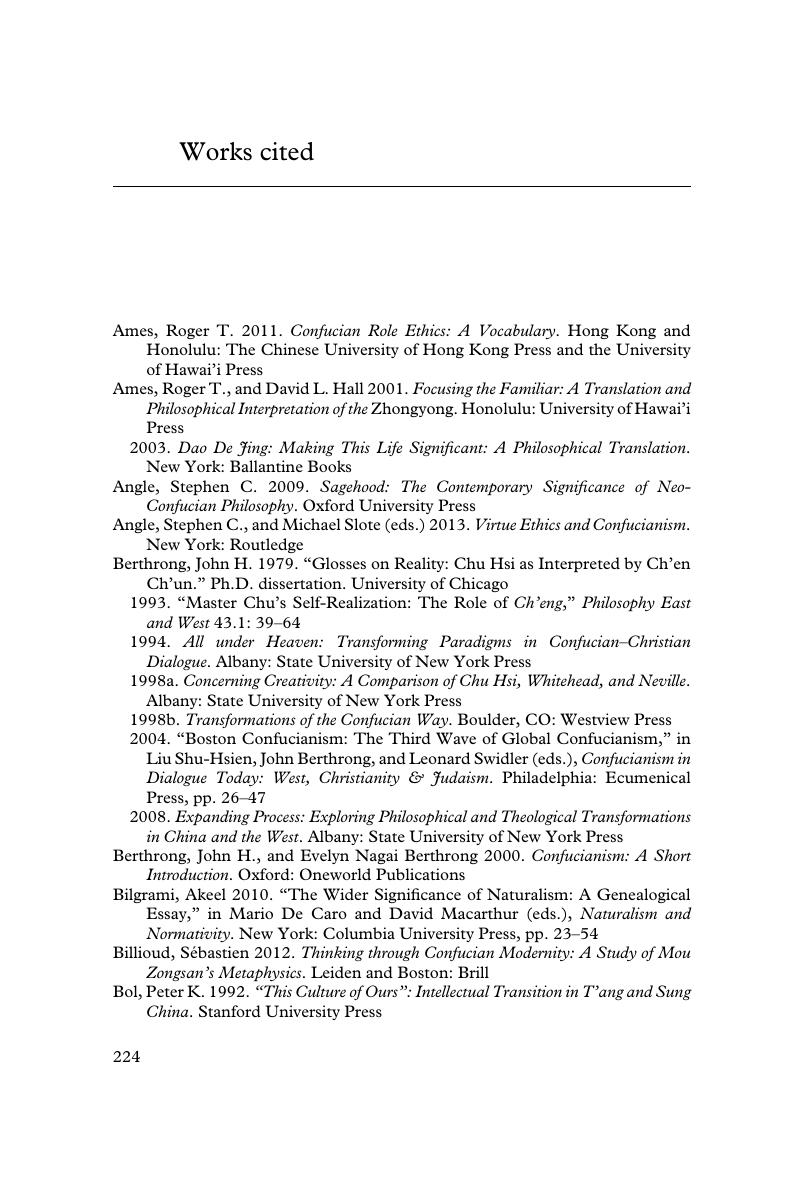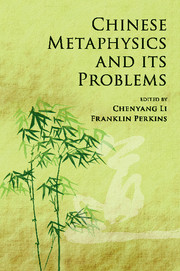Book contents
- Chinese Metaphysics and its Problems
- Chinese Metaphysics and its Problems
- Copyright page
- Contents
- Contributors
- Book part
- Introduction
- 1 Yinyangnarrative of reality
- 2 In defense of Chineseqi-naturalism
- 3 What is a thing (wu物)?
- 4 The Mohist conception of reality
- 5 Reading theZhongyong“metaphysically”
- 6 Logosanddao: conceptions of reality in Heraclitus and Laozi
- 7 Constructions of reality
- 8 Concepts of reality in Chinese Mahāyāna Buddhism
- 9 Being and events
- 10 Harmony as substance
- 11 A lexicography of Zhu Xi’s metaphysics
- 12 Xiong Shili’s understanding of the relationship between the ontological and the phenomenal
- Works cited
- Index
- References
Works cited
Published online by Cambridge University Press: 05 May 2015
- Chinese Metaphysics and its Problems
- Chinese Metaphysics and its Problems
- Copyright page
- Contents
- Contributors
- Book part
- Introduction
- 1 Yinyangnarrative of reality
- 2 In defense of Chineseqi-naturalism
- 3 What is a thing (wu物)?
- 4 The Mohist conception of reality
- 5 Reading theZhongyong“metaphysically”
- 6 Logosanddao: conceptions of reality in Heraclitus and Laozi
- 7 Constructions of reality
- 8 Concepts of reality in Chinese Mahāyāna Buddhism
- 9 Being and events
- 10 Harmony as substance
- 11 A lexicography of Zhu Xi’s metaphysics
- 12 Xiong Shili’s understanding of the relationship between the ontological and the phenomenal
- Works cited
- Index
- References
Summary

Information
- Type
- Chapter
- Information
- Chinese Metaphysics and its Problems , pp. 224 - 236Publisher: Cambridge University PressPrint publication year: 2015
